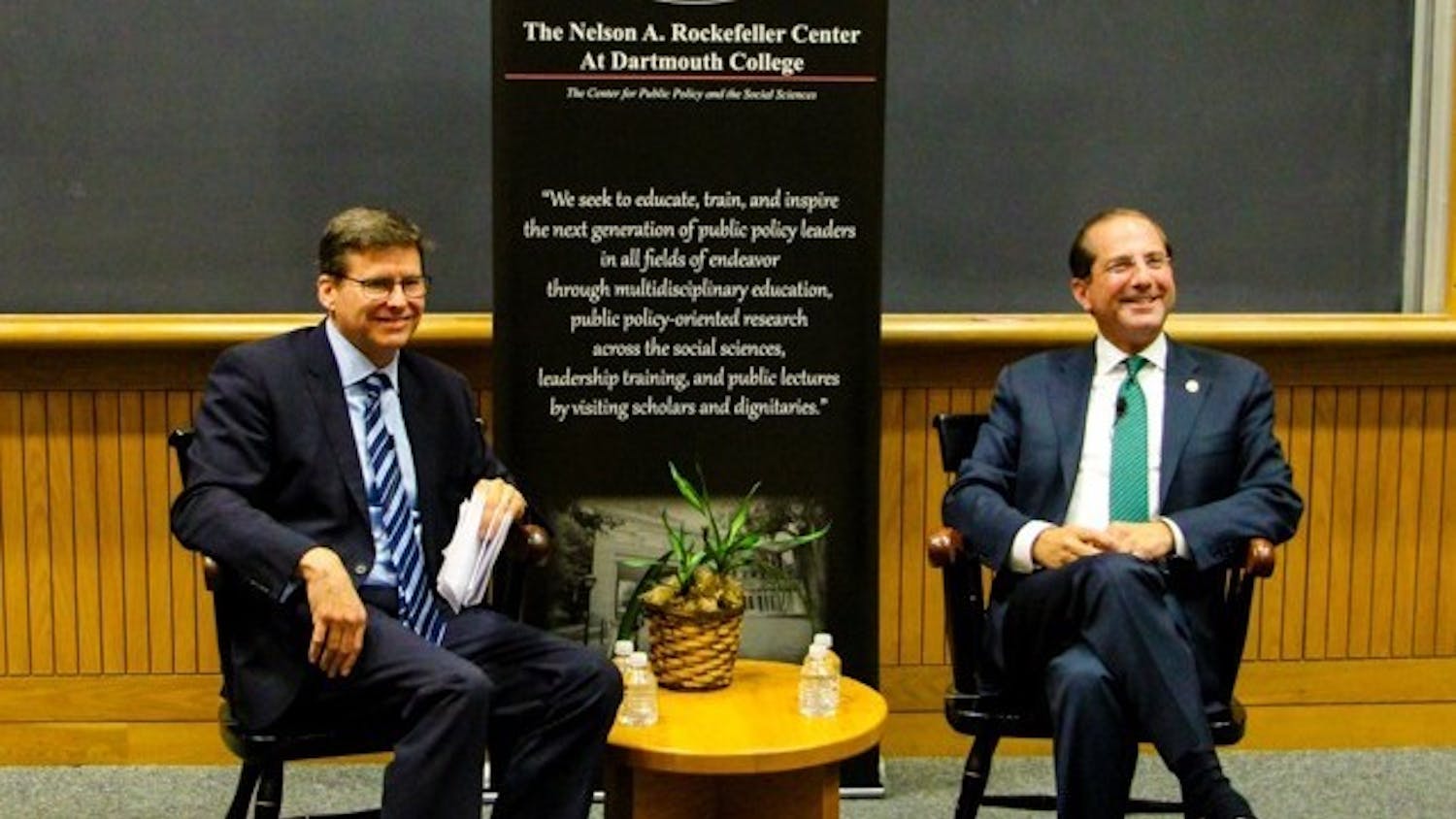On the eve of President Joe Biden’s inauguration, former President Donald Trump appointed Michael Ellis ’06 to serve as the top lawyer for the National Security Administration — a typically apolitical role. Trump’s midnight bid to appoint Ellis, who has led a controversial career as White House senior director for intelligence and senior associate counsel to Trump, drew immediate criticism from government officials and experts, and the Biden administration has since placed Ellis on leave pending an investigation into his selection for the role.
As an undergraduate, Ellis was editor-in-chief of The Dartmouth Review. During his tenure, he wrote numerous divisive opinion pieces, including an article defending then-Harvard University president Larry Summers for “suggest[ing] [that] perhaps the sexes’ brains may function in different ways.” Under Ellis’s leadership, the Review also published an editorial that compared modern affirmative action policies to Dartmouth’s anti-Semitic admissions policies of the 1920s.
After graduation, Ellis went on to become associate director of the White House Office of Strategic Initiatives under former President George W. Bush’s administration, and soon after served as a deputy director of strategy for Mitt Romney’s 2008 presidential campaign.
Last fall, after Trump announced his intention to appoint Ellis as the NSA’s top lawyer, the agency’s director Paul Nakasone opposed the appointment. Many national security legal experts also disagreed with the move, claiming that Ellis’s appointment to a traditionally merit-based civil service position was politically motivated.
Daniel Benjamin, former Dickey Center for International Understanding director and coordinator for counterterrorism at the U.S. State Department under the Obama administration, said that political appointees in civil service positions are part of a long tradition known as “ramspecking.”
The Ramspeck Act of 1940 allowed for congressional staffers to take up a job in civil service if they lost a position on the Hill — subverting the typical civil service hiring process. While the act was repealed in 1997, ramspecking still occurs, according to Benjamin.
“It is not an entirely bad thing if people want to be public servants. However, the Trump administration — uniquely in American history — seems to have wanted to see people in the bureaucracy as a part of a scorched-earth strategy to make life as difficult as possible for the incoming administration,” Benjamin said. “After all these years talking about a deep state that didn’t exist, they are trying to create their own, and that is highly problematic.”
Benjamin added that Ellis’s involvement in “highly dubious” activities further complicated his hiring, particularly in a position typically reserved for highly experienced and trusted civil servants.
“The general counsel for the NSA is a hugely important job, and traditionally it has gone to people with a lot of government experience,” Benjamin said. “This is a job dealing with unbelievably complex legal matters, and it was wholly inappropriate to put someone who has such limited experience as Ellis in that job — it was a naked power grab.”
Public policy professor Charles Wheelan said the distinction between civil service and political appointees is a crucial element of the U.S.’s functioning.
“It separates the United States from its earlier history, when people bought offices and it was far more corrupt than our system now,” Wheelan said.
Wheelan added that civil servants are, in theory, impervious to politics, because what they do by nature is not inherently political.
“By law, they are not meant to be political — they are the infrastructure of the government,” Wheelan said.
Wheelan said that political appointees, by contrast, comprise a much smaller portion of the government and often reflect the will and priorities of the administration.
According to Richard “Dickie” George ’70, a former senior advisor for cybersecurity at the NSA, the NSA’s general counsel generally provides legal advice to the NSA director. George added that the role primarily entails that of a legal advisor, and the individual has little ability to make decisions relating to national security.
George said the political motivations for Ellis’s appointment could be several — one, to have a Trump loyalist within the agency to gather intelligence, or two, because the Trump administration felt it “owed something” to Ellis.
“The general counsel at NSA is a pretty powerful position, not because it makes decisions but because of all the access to information,” George said.
George added that the role of general counsel has “lots of protections built-in,” including a thorough vetting and scoring process. Ellis “was not the high scorer” in these vetting procedures, according to George.
“Usually what happens is there is a negotiation between NSA and the Department of Defense general counsel, and they choose someone that is acceptable to both sides,” George said. “I think that process was not followed here, and there were things in his background that made him less acceptable to General Nakasone.”
Ellis’s career has been marred by a number of controversies. According to testimony from White House National Security Council aide Lt. Col. Alexander Vindman, Ellis was also involved in the attempt to classify Trump’s July 2019 call with Ukrainian President Volodymyr Zelensky — a conversation that ultimately led to the former president’s first impeachment. During the House impeachment trial, Ellis was one of 10 administration officials to defy subpoenas to testify as witnesses during the ensuing House impeachment trial, and his name was included in the House’s second article of impeachment as a result.
If the Biden administration determines that Ellis was installed in a position designated for civil servants in a political manner, he can be permanently fired from the position of top lawyer for the NSA. A new general counsel can also reassign Ellis within the civilian Defense Department, provided the assignment is a position with “equal rank in the defense intelligence senior executive service,” according to The Washington Post.
According to George, individuals in powerful NSA positions are often reassigned to new positions with the intent to lessen an individual’s influence in a respective role.
Ellis did not respond to a request for comment.





